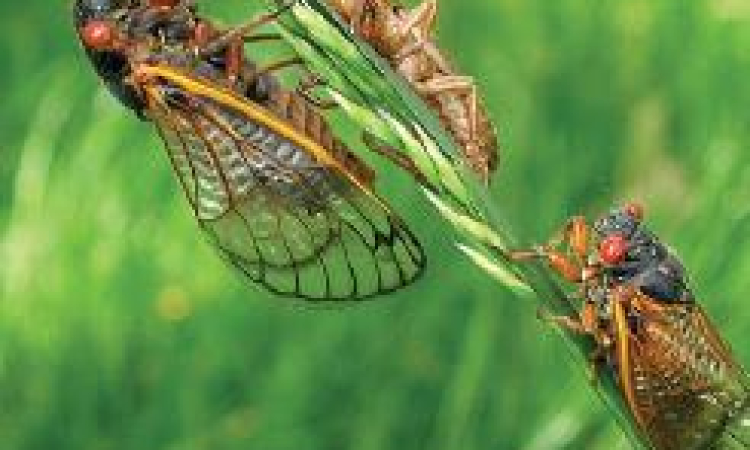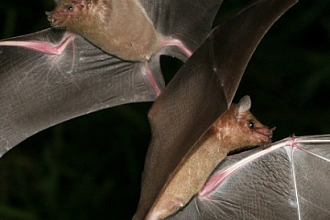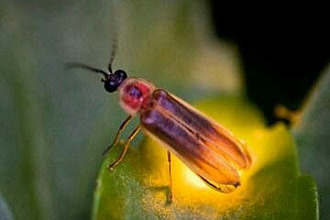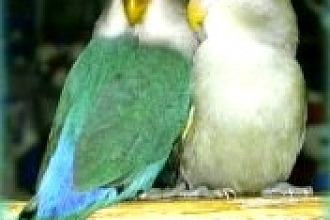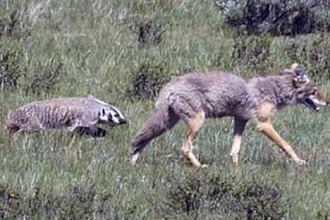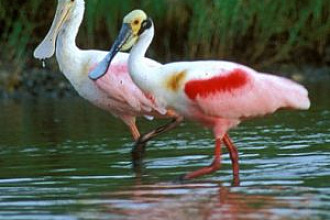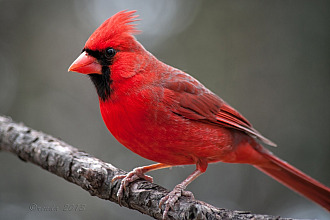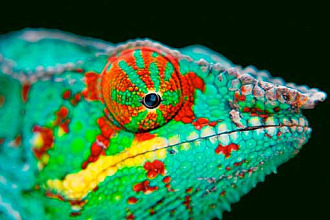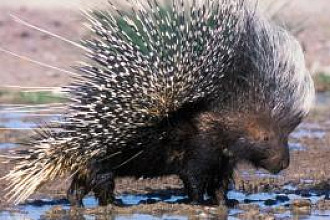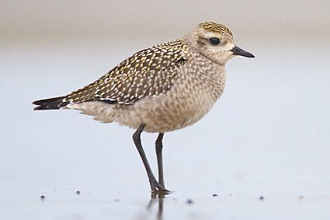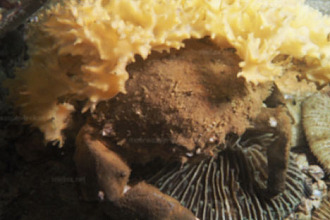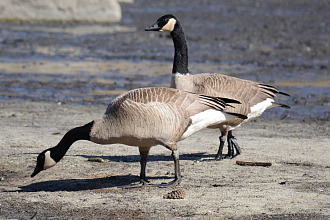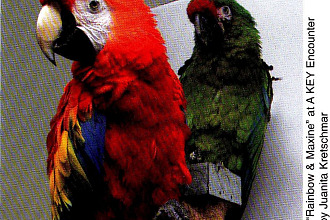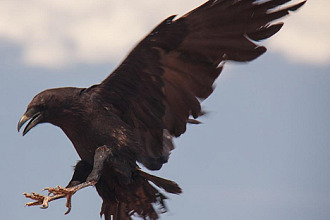"Wait on the Lord; be of good courage, and He shall strengthen your heart; wait, I say, on the Lord!" (Psalm 27:14)
Probably most of us have heard the sounds made by cicadas. In many areas, a familiar part of summertime is hearing their loud rasping noises coming from high up in the trees. There are many kinds of cicadas, and the particular sounds they make help to identify which species is calling.
Did you know that cicadas spend most of their lives underground? After the young cicada hatches from its egg, it drops down from the tree onto the ground and quickly crawls into the dirt. There it feeds on the sap it sucks from tree roots. As it grows, the cicada molts (sheds its skin) several times.
Finally the cicada is ready to become an adult. After digging up to the surface of the ground, it crawls out of the dirt for the first time. Then it molts one final time and becomes an adult cicada. You might have found one of these cicada "shells" attached to a plant or the bark of a tree.
Cicadas live for only a few weeks or months after becoming an adult, but they spend a lot more time than that underground. Did you know that periodical cicadas -- those shown in these pictures -- stay underground for either thirteen or seventeen years, depending on the species? That's a long time to wait underground before becoming an adult! How patient the cicada must be to wait for the right time to come up out of the ground!
The Bible tells about a man who had to be very patient for a long time. David was still a young shepherd boy when Samuel anointed him to be king. It wasn't until many years later, when he was thirty years old, that David finally became king. Many young men would have become impatient with the delay, but not David. He chose to patiently wait until the right time --God's time.
It might seem that it takes a long time for God to work out His plan for your life. Be patient and cooperate with Him. He knows the end from the beginning, and He has a wonderful plan for your life.
This article provided by: My Bible First.
To purchase books about nature from My Bible First click here.

